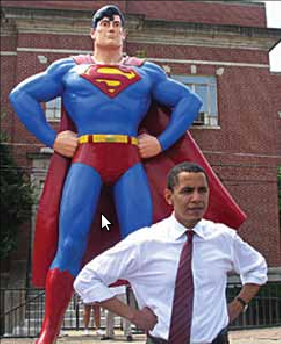Can Barack Obama Stop the Status Quo?
Can Barack Obama Stop the Status Quo?
 Senator Barack Obama, who campaigned on a willingness to talk to foes of the United States, has decisively won the presidential election. Will conflict resolution be a guiding principle in U.S. foreign policy under President Obama? Perhaps the exuberance of optimism may have overlooked the United State's power structure in international politics. Regardless of his rhetoric on change, President Obama will be inheriting some core elements of President Bush's foreign policy. The top unchanged policy will be the U.S. military doctrine adopted since the end of the Cold War.
Senator Barack Obama, who campaigned on a willingness to talk to foes of the United States, has decisively won the presidential election. Will conflict resolution be a guiding principle in U.S. foreign policy under President Obama? Perhaps the exuberance of optimism may have overlooked the United State's power structure in international politics. Regardless of his rhetoric on change, President Obama will be inheriting some core elements of President Bush's foreign policy. The top unchanged policy will be the U.S. military doctrine adopted since the end of the Cold War.
The doctrine is set to maintain U.S.'s military superiority by keeping a significant gap between the U.S.'s military and its potential peer competitors. The second part of the doctrine aims to preserve the U.S. military's power projection all over the world—that is, the ability to strike any part of the world within a relatively short period of time.
Additionally, Obama has not scrapped Bush's preemptive-war doctrine, especially when it comes to counter-terrorism. Obama has spoken in favor of targeting Al Qaeda in Pakistan even without the authorization by Pakistan authorities.
The U.S. military strategy and preemptive doctrine have fostered a categorical arms race. To counter the U.S.'s air superiority, Russia has invented and deployed S-400 air defense system that the Kremlin claims to be more effective than the U.S.'s second-generation Patriot missile system. China has modernized its naval units, ballistic missiles and electronic warfare systems to deter the U.S.'s intervention in the Taiwan Strait if the conflict emerges. A recent RAND study suggests that the U.S.'s military is not adequate to thwart a Chinese attack on Taiwan in 2020.
Both China and Russia are exporting sophisticated weapon systems to U.S. adversaries, including Iran, a state which is likely to be nuclear-weapons powered during the Obama administration if its uranium enrichment continues as originally planned. Obama calls for the U.S.'s unwavering support to Israel and reiterates that a nuclear-armed Iran is "unacceptable."
Obama's defense plan has no indication of reducing the military budget, except Iraq-related spending. Actually, Obama's electoral victory has raised the stock portfolio of U.S. defense industries.
Since the end of the Cold War, all U.S. presidents used military force against other states for one reason or another. Unfortunately, this structural aspect of U.S. power remains unchanged under President Obama. Conflict resolution may still be in the back seat of U.S. foreign policy.




